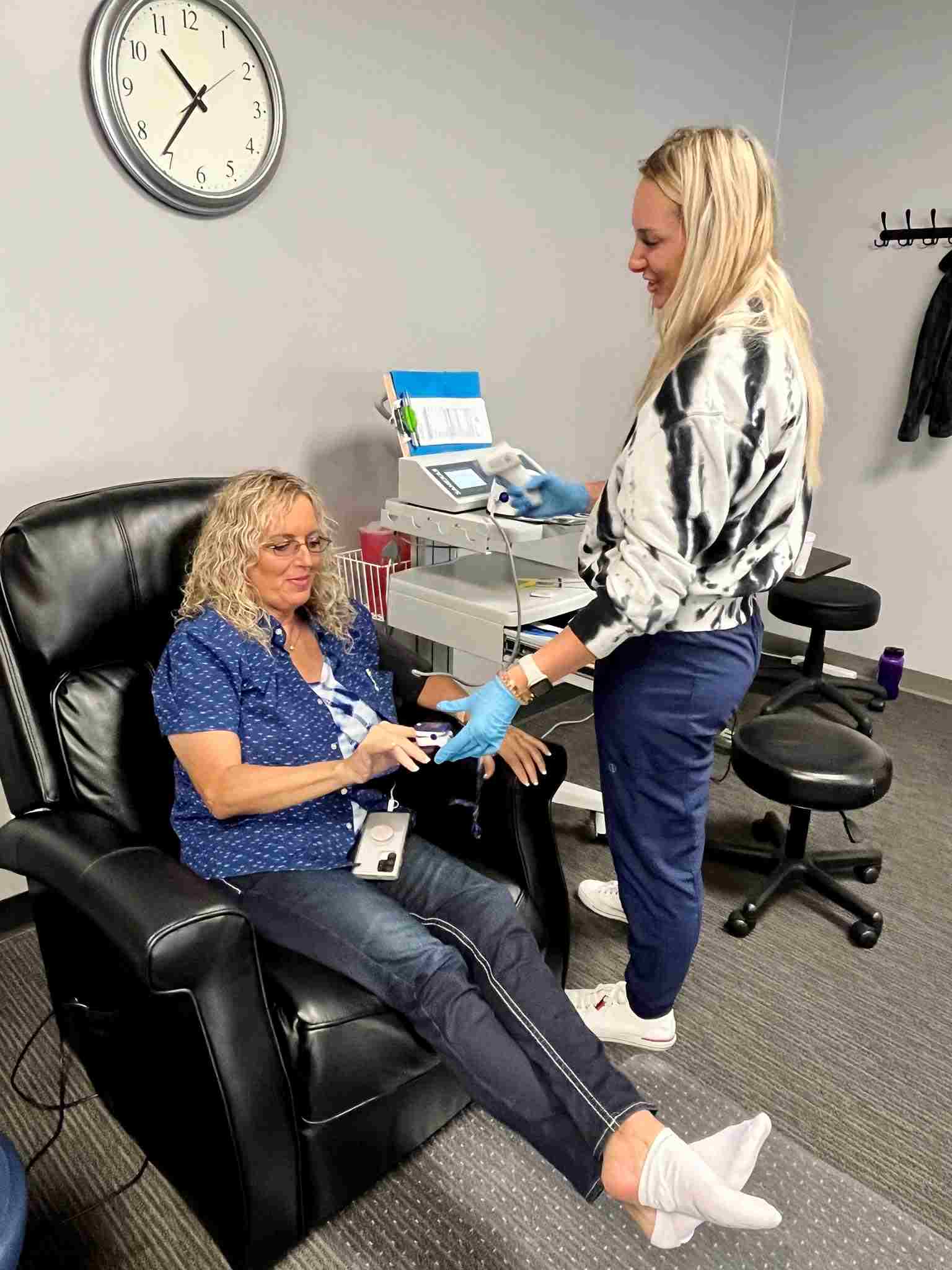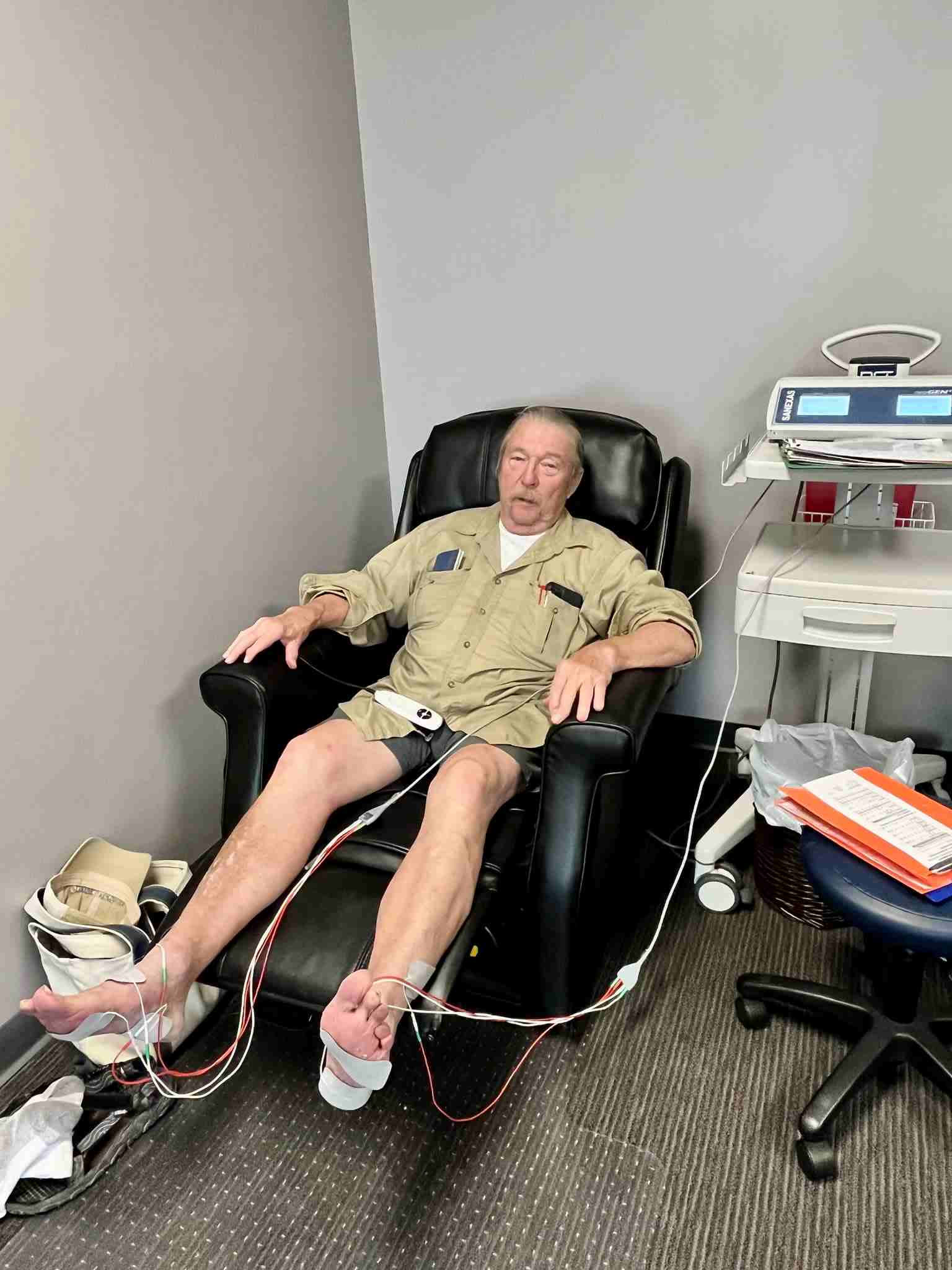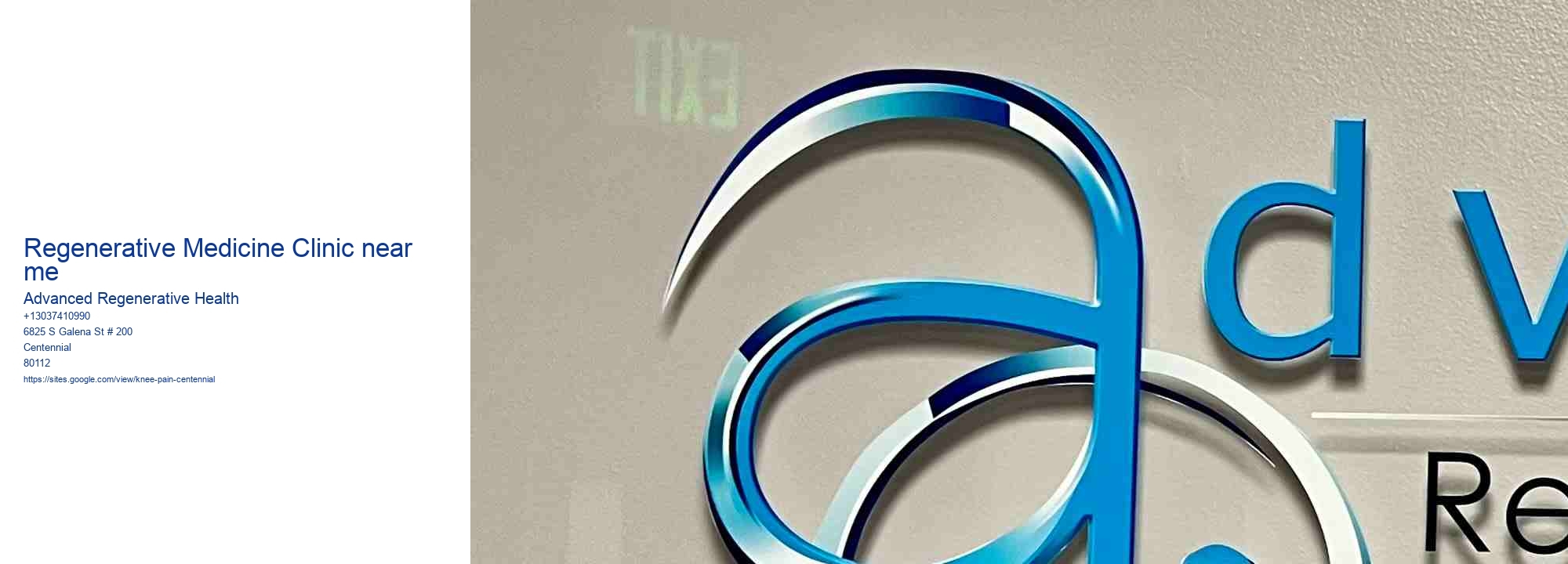Treatment Options Available
Regenerative medicine is an exciting and rapidly advancing field that holds promise for treating a variety of conditions by harnessing the body's own healing mechanisms. Centennial Regenerative Medicine Clinic clinic . If youre considering visiting a regenerative medicine clinic near you, its essential to understand the treatment options available and how they might benefit your health and well-being.
One of the primary treatment options in regenerative medicine is stem cell therapy. Stem cells have the unique ability to develop into different types of cells, making them instrumental in repairing damaged tissues. Clinics offering regenerative medicine often utilize stem cells to treat conditions such as osteoarthritis, tendon injuries, and certain degenerative diseases. By injecting stem cells into the affected area, these clinics aim to promote natural healing and reduce inflammation, potentially offering relief to patients who have not responded well to traditional treatments.
Another popular regenerative therapy is platelet-rich plasma (PRP) treatment. PRP involves drawing a small amount of the patient's blood, processing it to concentrate the platelets, and then injecting it into the injured area. Platelets contain growth factors that can stimulate tissue regeneration and accelerate the healing process. Peripheral Nerve Pain Relief Centennial CO PRP is commonly used for sports injuries, chronic pain conditions, and even cosmetic procedures to rejuvenate the skin.
In addition to stem cell and PRP therapies, some regenerative medicine clinics offer prolotherapy. This treatment involves injecting a natural irritant into the ligaments or tendons. The irritant triggers the body's healing response, promoting the growth of new, healthy tissue. Prolotherapy can be particularly effective in treating joint pain and instability, offering a non-surgical option for individuals suffering from chronic musculoskeletal pain.
Regenerative medicine clinics near you might also explore the use of exosomes, which are small vesicles that play a crucial role in cell communication and the healing process. Exosome therapy is an emerging treatment that can potentially enhance tissue repair and reduce inflammation, providing another avenue for addressing various medical conditions.
Choosing the right regenerative medicine clinic is crucial for receiving proper care. Centennial CO Joint Regeneration Specialist Look for clinics with experienced medical professionals, a track record of successful treatments, and a patient-centered approach. Its also important to have a thorough consultation where your medical history and specific needs are considered to tailor the best treatment plan for you.

In conclusion, regenerative medicine offers a range of innovative treatment options that might help you restore health and improve quality of life. By exploring therapies such as stem cell therapy, PRP, prolotherapy, and exosome treatment, you may find effective solutions for conditions that have been challenging to treat with conventional methods. As you consider visiting a regenerative medicine clinic near you, ensure you are informed about the potential benefits and risks, and seek a clinic that prioritizes patient safety and individualized care.
Qualifications of Medical Staff
In recent years, regenerative medicine has emerged as a groundbreaking field that offers innovative treatments for various medical conditions. This rapidly evolving discipline focuses on harnessing the bodys own repair mechanisms to heal damaged tissues and organs. If youre considering visiting a regenerative medicine clinic near you, understanding the qualifications of the medical staff is crucial to ensure you receive the best possible care.
Regenerative medicine clinics are staffed by a diverse team of healthcare professionals who bring together a wide array of expertise. At the forefront are often physicians who specialize in fields such as orthopedics, sports medicine, and physical rehabilitation. These doctors typically possess advanced training in regenerative techniques, having completed fellowships or certifications that focus on the latest advancements in cellular therapies and tissue engineering. Their deep understanding of musculoskeletal biology and regenerative processes is essential for designing effective treatment plans tailored to individual patient needs.
In addition to physicians, many regenerative medicine clinics employ researchers and scientists who contribute to the development of cutting-edge therapies. These professionals often hold advanced degrees in fields like molecular biology, bioengineering, or pharmacology. Their research efforts are vital in ensuring that the treatments offered are based on sound scientific principles and the latest clinical evidence. Collaborating closely with the medical team, these researchers help translate laboratory findings into practical applications, ensuring that patients benefit from the most recent advancements in the field.

Nurses and physician assistants also play a pivotal role in regenerative medicine clinics. These healthcare providers are typically trained in the specific protocols associated with regenerative therapies, such as the preparation and administration of stem cell injections or platelet-rich plasma treatments. Their expertise ensures that procedures are carried out safely and effectively, providing patients with the highest standard of care.
Moreover, many clinics incorporate multidisciplinary teams that include physical therapists and nutritionists. These professionals contribute to comprehensive care plans that support the regenerative process. Physical therapists design rehabilitation programs that enhance mobility and strength, while nutritionists offer guidance on dietary choices that support tissue repair and overall health.
When choosing a regenerative medicine clinic, its essential to inquire about the qualifications and experience of the medical staff. Look for clinics that boast a team with a strong academic background, extensive clinical experience, and a commitment to ongoing education in regenerative medicine. The best clinics are those where professionals work collaboratively, combining their expertise to provide holistic and personalized treatment plans.
In conclusion, the qualifications of the medical staff at a regenerative medicine clinic are a cornerstone of effective patient care. By ensuring that the team is comprised of skilled and knowledgeable professionals, patients can feel confident that they are receiving the most advanced and appropriate treatments available. As regenerative medicine continues to evolve, the dedication and expertise of the medical staff will remain critical in advancing the field and improving patient outcomes.

Patient Success Stories
In recent years, regenerative medicine has emerged as a groundbreaking field that promises to transform the way we approach healing and recovery. As more people seek alternative therapies to conventional treatments, regenerative medicine clinics are becoming increasingly popular. One of the compelling aspects of these clinics is the abundance of patient success stories, which provide hope and inspiration to those considering these innovative treatments.
Regenerative medicine focuses on repairing or replacing damaged cells, tissues, or organs to restore normal function. This field leverages the bodys natural healing processes, often utilizing stem cells, growth factors, and tissue engineering. For many patients, especially those who have exhausted traditional medical options, regenerative medicine offers a new lease on life.
Consider the story of Jane, a 55-year-old woman who suffered from chronic knee pain due to osteoarthritis. After years of managing her pain with medication and physical therapy, Jane was given the option of knee replacement surgery. However, she was hesitant due to the invasive nature of the procedure and the lengthy recovery time. Upon researching alternatives, Jane discovered a regenerative medicine clinic near her. After consulting with the clinics specialists, she decided to undergo stem cell therapy. Within months, Jane experienced significant pain reduction and increased mobility, allowing her to return to activities she once thought were beyond her reach.
Another inspiring account is that of Tom, a middle-aged athlete who faced a career-ending injury. He tore his ACL during a crucial game and was devastated by the prospect of never playing his beloved sport again. Traditional surgery seemed like the only option, but Tom worried about the long recovery and potential loss of performance. A friend recommended a regenerative medicine clinic that specialized in platelet-rich plasma (PRP) therapy. Skeptical but hopeful, Tom decided to give it a try. To his delight, the treatment accelerated his healing process, and after dedicated rehabilitation, Tom was back on the field, performing at his peak.
These success stories are not just anecdotes; they are testaments to the potential of regenerative medicine to change lives. Patients who undergo these treatments often report not only physical improvements but also enhanced quality of life and emotional well-being. The personalized care and cutting-edge techniques offered by regenerative medicine clinics are providing patients with solutions that were once unimaginable.
As regenerative medicine continues to evolve, more people are discovering the benefits of these therapies. For those considering such treatments, looking into the patient success stories from a local regenerative medicine clinic can be a source of encouragement and reassurance. These stories underscore the promise of regenerative medicine: the ability to heal and renew, offering hope to those who need it most.
How to Schedule an Appointment
Scheduling an appointment at a regenerative medicine clinic near you can seem like a daunting task, but with the right approach, it can be a seamless and efficient experience. Regenerative medicine, which focuses on harnessing the bodys own healing mechanisms to repair and regenerate damaged tissues, offers promising treatments for a variety of conditions. Our clinic makes non-surgical orthopedic clinic centennial easier than trying to assemble furniture without instructions Whether youre seeking therapy for chronic pain, joint issues, or other ailments, securing an appointment is the first crucial step toward your journey to better health.
The initial step in scheduling an appointment is conducting thorough research to identify a reputable regenerative medicine clinic in your area. This can be done by searching online for clinics with good reviews, asking for recommendations from healthcare professionals, or reaching out to friends or family who may have undergone similar treatments. Once you have a list of potential clinics, visit their websites to gain insights into the services they offer, the qualifications of their staff, and any patient testimonials.
After narrowing down your options, the next step is to contact the clinic directly. Most clinics provide a phone number or email address for appointment scheduling. When reaching out, it's important to clearly communicate your health concerns and the specific treatment you are interested in. This will allow the clinic staff to determine the best course of action and schedule you with the appropriate specialist. Additionally, inquire about any required documentation or medical records you may need to bring to your appointment, as this can help streamline the process.
In todays digital age, many clinics also offer the convenience of online appointment scheduling. This feature can often be found on the clinic's website, allowing you to select a suitable date and time from the available slots. Online booking systems can be particularly beneficial for those with busy schedules, as they allow you to manage your appointment at any time of the day.
Once your appointment is scheduled, make sure to confirm the details, such as the date, time, and location of the clinic. It's also advisable to arrive a little earlier than your scheduled time to fill out any necessary paperwork and to ensure that all your questions are prepared beforehand.
In conclusion, scheduling an appointment at a regenerative medicine clinic involves a few straightforward steps: conducting research, reaching out to the clinic, and confirming the appointment details. By being proactive and organized, you can ensure a smooth process, allowing you to focus on the potential health benefits that regenerative medicine may offer. Through this journey, you are taking a significant step toward enhancing your well-being and exploring new opportunities for healing and recovery.
